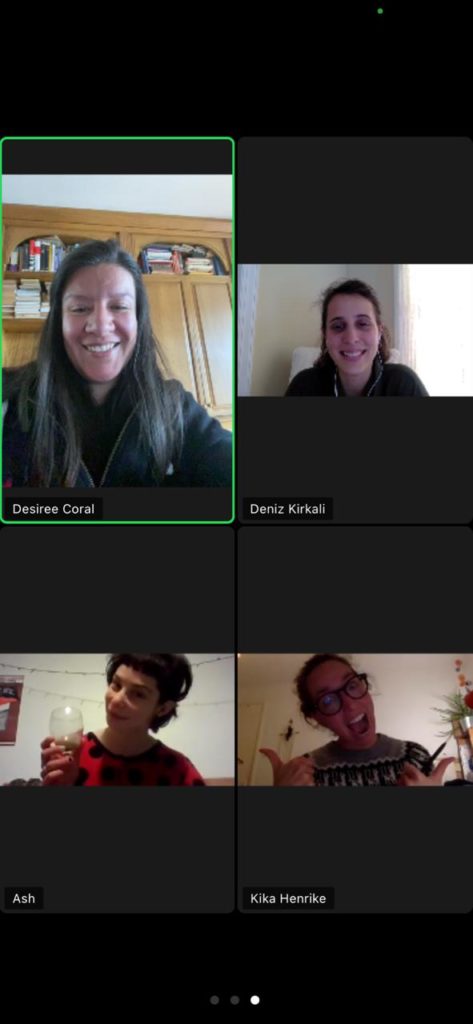
Participants are:
Aisling Marks
I’ve been asking my informants what they understand to be the relationship between learning and care. I’m yet to do the analysis, and I still have many more subjects to talk with. But so far, responses have pinpointed ideas around responsibility, commitment, generosity and mutual aid. Teaching and learning as a form of mutual aid has come up from one self-organised art education platform as an explicit response to the pandemic, placing teaching and learning almost on an even footing with necessities such as food. Practices of mutual aid have been flourishing during the COVID-19 pandemic, but this was the first time I had heard the term in relation to the practice of pedagogy. It’s an interesting idea to explore further, in tandem with readings from David Graeber, Peter Kropotkin and Karl Marx.
Désirée Coral
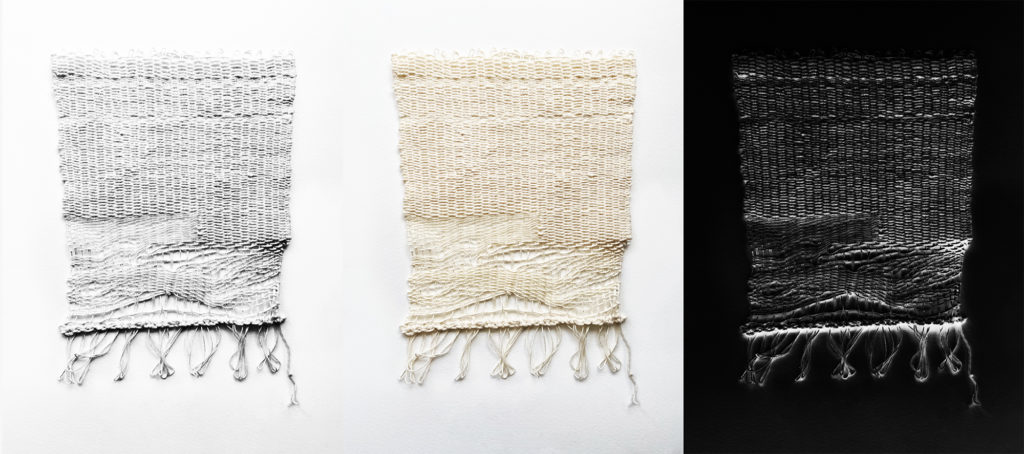
We are living in a highly polarized political moment, where (post)colonial revisions and drastic environmental concerns are rewriting the parameters of how we relate to and understand the world.
I am an Ecuadorian visual artist, graduated in ceramics, former director of Panal de Arte Residencia de Arte in Guápulo 2011-2013 (A historical colonial site of Quito, where projects were created involving community and the artists in residence). I am also a teacher of ceramics and drawing at the Universidad San Francisco de Quito and mixed media teacher at Universidad de las Américas.
My practice and research of Andean ceramics, materials, textiles and dyes has led me to investigate the interrelationships involved in the process of making, teaching, learning, and researching of color in the cultures of the Andes.
My research focuses on the culturally defined materiality of colors, a subject still understudied within the developing scholarship on “materiality” (Young 2006) and the “new materialisms” (Coole & Frost 2010). I do so in the context of, and relation to Ecuador, a multi-ethnic country that has been indelibly defined by its colonial past.
The ancestral knowledge of materials, dyes and colors that indigenous people had, has been erased and hidden by the colonial encounter. My experience as an Ecuadorian artist, has taught me that the encounter between arts/crafts teachers and learners is still tainted by this colonial legacy. It is therefore a conflictive encounter.
Knowledge needs to be de-colonized, scholar W. Mignolo maintains (Mignolo 2002.)by explicitly acknowledging the sources and geo-political locations of knowledge, as well as by affirming those modes of knowledge practices that have been denied by the dominance of particular forms of colonial powers. This is not simply and argument for a geo-politics of location as central to any academic endeavor but is a call to consider seriously what that geo-politics enables to be known and how it is known. Epistemology is not a-historical, and it must be “geographical in its historicity” (Mignolo, 2002:67)
Bibliography
D. Coole & S. Frost (eds.). 2010. . New Materialisms: Ontology, Agency, and Politics. . Durham: Duke University Press.
Diana, Young. 2006. Handbook of Material Culture :The colours of things, in Chris Tilley, Webb Keane, Susanne Kuechler, Mike Rowlands, Patricia Spyer (eds.). London: Sage.
Mignolo, W.D. 2002. “The Geopolitics of Knowledge and the Colonial Difference.” South Atlantic Quarterly 101 (1): 56-96.
Deniz Kirkali
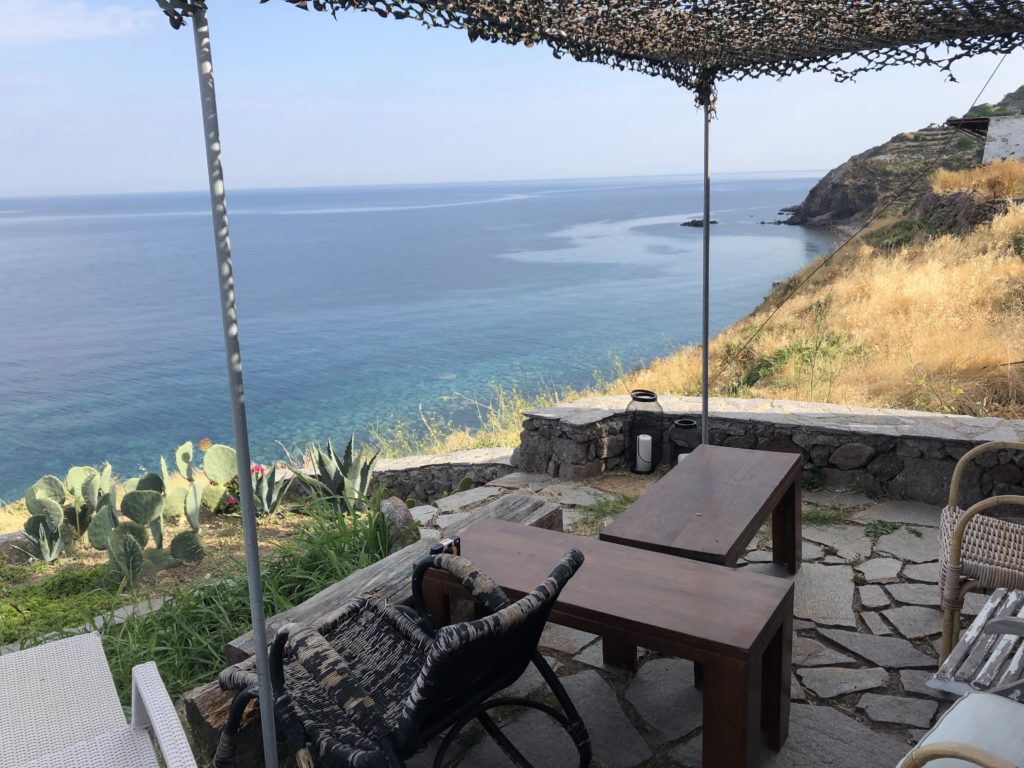
This is Babakale, a small fishermen’s village at the most western point of Turkey and Asia connected to land, overlooking the Aegean Sea. In 2019, with artist Ayse Idil Idil, we co-founded Garp Sessions which is a summer research programme that brings artists and thinkers together in Babakale for a duration of ten days. Each iteration of Garp Sessions is centered around a word, a theme or a topic that is somehow dealing with the local context of Babakale. The programme is comprised of teaching sessions where all residents bring in something into the discussion whether be a technical skill, a practical tool, knowledges or use this opportunity to delve into something they want to learn more about; reading sessions where participants discuss both preliminary readings shared by facilitators prior to the programme and material brought in by the participants in response to these preliminary readings, and reflection sessions where participants reflect on the process, share ideas for potential further projects they have started thinking on throughout the programme. Collective dinners where participants cook and eat together are another crucial aspect of the programme. The 2019 programme was called Alternative Guidelines and the 2020 iteration was called Fictional Protocols and Desirable Futures. The third iteration will take place in August 2021.
My curatorial practice is centered around creating spaces and platforms for collective contemplation and experimenting with alternative models of knowledge production. I am currently interested in how these gatherings, encounters and models of alternative ways of collective work can provide methodological tools for alternative pedagogical models. As part of this endeavor, with topsoil, a curatorial and research collective I co-founded with Amelie Wedel and Sofia Villena Araya, we are working on a long term research project called Experimental Pedagogies which is an exercise of imagining another type of school.
Henrike (Kika) Neuhaus
Re- Encounters

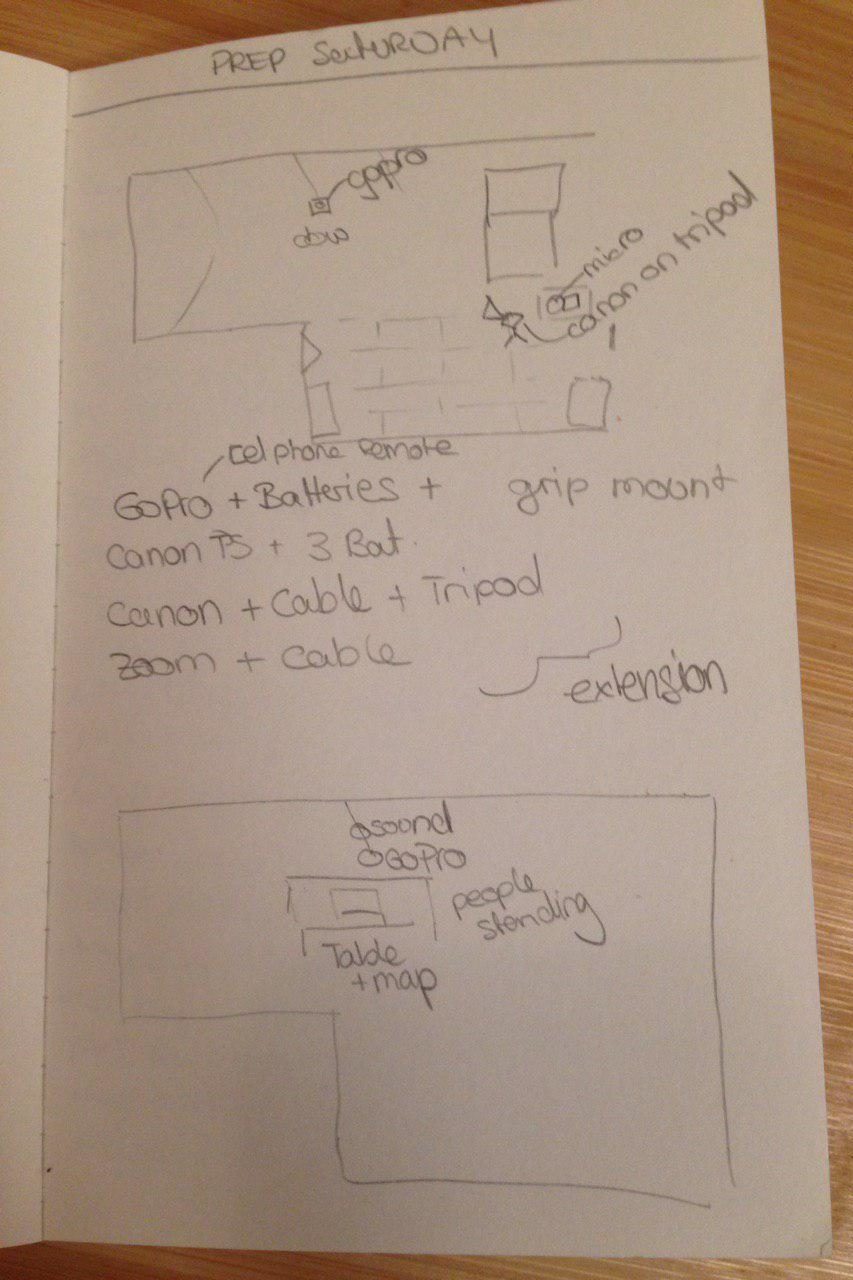
Researching the realm of martial art practices, I am exploring visually the apprenticeship of Taekwondo in urban Argentina. The fieldwork has let me gain insights into different pedagogies and learning patterns. Furthermore, Taekwondo is starkly debated whether the discipline can be categorised as a sport or as an art practice. Accordingly, the whole research project pivots around the notions of embodiment, (martial) arts and education scrutinised through the lens of care to understand dimensions of gender, age and moving bodies concerning class identities and ethnicity in particular. The aim is to produce a multimodal ethnography, an installation of a map that is linked to several short films which shall unfold into an exhibition that describes the practices of care and evokes a sensation of the different urban spaces.
The current pandemic has closed borders and impedes to return physically and hence, continue working collaboratively on the outputs and dissemination of the material among the research participants. The methodological tryouts support an in depths reflection of fieldwork material and data under contemporary circumstances. Due to the unforeseen shift and cancellation of the travel, there has been a move to delivering Taekwondo classes online which revived relationships and collaborations across continents. Practising together and creating spaces for comments and chatting with the research participants from screen to screen urges to reformulate original ideas including the editing of the material and writing the thesis. Without the pandemic, this form of international connection on a hyper-local level (home) may never have developed producing re-encounters with a fieldsite that has been been left in 2018.
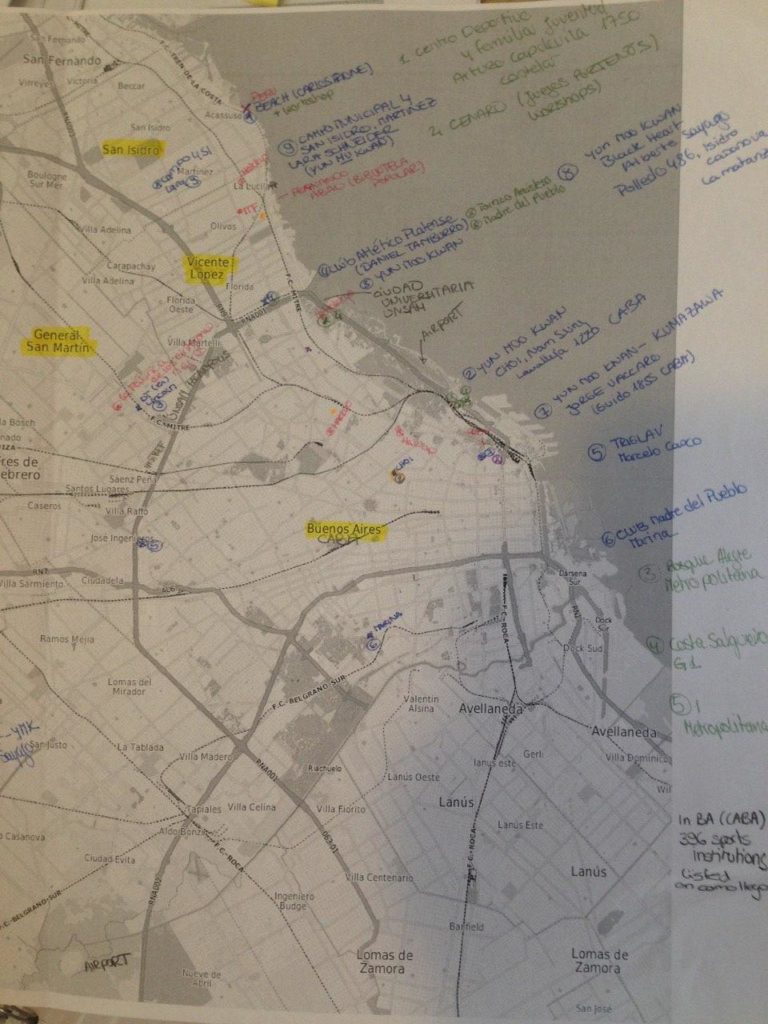
0 Comments